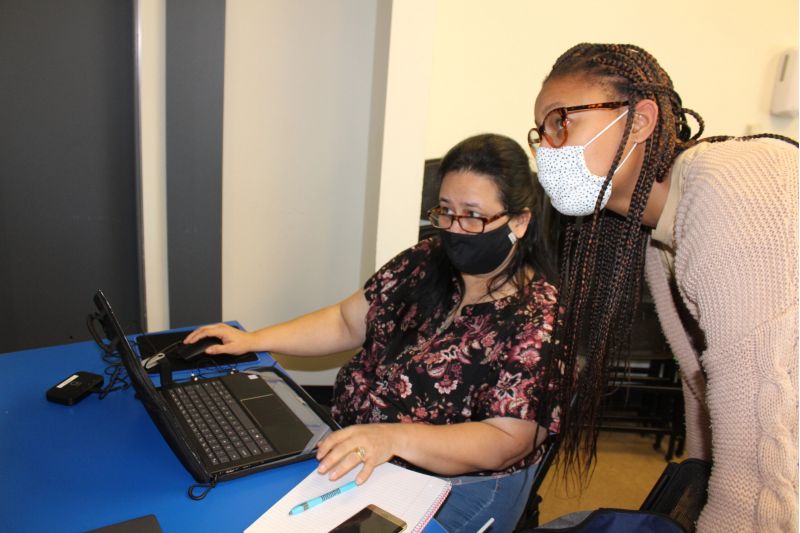3 Strategies for Advocating in Support of Affordable Housing

By building smaller and smarter, and creating more variety in the housing supply, Dallas can make rents and mortgages more attainable for more of us.
At United Way of Metropolitan Dallas, the issue of housing is foundational to our focus areas of education, income and health—because no North Texan can thrive in these three pillars if they lack stable, secure housing.
Throughout the current 89th Texas legislative session and beyond, one of our legislative priorities is to advocate for policies that will increase the supply of affordable housing and promote housing stability for low-income workers and families.
You don’t need to be a housing or advocacy expert to be part of this important work. To encourage change-seekers like you to speak up and speak out in support of affordable housing, we partnered with the research firm Topos to create an easy-to-use advocacy toolkit, which provides step-by-step instructions on how to advocate for narrative change around housing.
Download your copy of our affordable housing advocacy toolkit, or read on for key takeaways that you can use to support your advocacy work.
The Importance of Affordable Housing
When our neighbors have access to affordable housing, they are better equipped to thrive in every area of life. With a stable, secure home, students are more likely to succeed in school and avoid frequent moves; workers are more likely to stay employed and save money for the future; and families are more likely to stay safe and healthy.
Unfortunately, a lack of affordable housing and rising rent and mortgage costs across North Texas are making it more challenging than ever for our neighbors to find and maintain stable housing. According to The State of Dallas Housing: 5-Year Comparison Report—which was prepared by buildingcommunityWORKSHOP and sponsored by United Way of Metropolitan Dallas, The Dallas Foundation and The Meadows Foundation—since 2016, there are fewer homes valued at our around $100,000 making affordable housing stock out of reach for low-to moderate-income homebuyers.
Meanwhile, in the last few years, average rents have reached an all-time high. According to Child Poverty Action Lab’s 2024 Rental Housing Needs Assessment for the city of Dallas, the median rent is unaffordable to 71% of residents.
This means more of our neighbors are struggling to balance rent, bills and other financial responsibilities. For many North Texans in this situation, it becomes impossible to keep up with a high rent or mortgage payment, which can lead to homelessness—a significant concern in our community. More than 3,700 individuals experience homelessness in Dallas and Collin counties alone on a given night, according to the 2024 Housing Forward State of Homelessness report.
However, our region can begin to shift these trends by embracing more affordable housing. Together, we can advocate for policies that will expand access to affordable housing and encourage other change-seekers to support housing that is smaller, is smarter and includes greater variety. Read more here about how the Texas legislature could tackle affordable housing this session, and check out this newly released report by the Bush Center proposing a federal policy agenda to address housing affordability.
Why We Need to Talk About Affordable Housing Differently
Housing affordability is an urgent, top-of-mind issue for Dallas residents. Unfortunately, local, cultural assumptions and ways of thinking about causes and solutions are often out of sync with what advocates would like to see. Our toolkit is part of an effort to bring experts, public officials, advocates and members of the public onto the same page.
At United Way, we recognize that an important part of our mission to improve housing stability and prevent homelessness involves changing the narratives that exist around affordable housing. If we can shift how people talk about “affordable housing”—which is sometimes seen as a negative—we can encourage greater support and development of lower-cost housing options.
3 Tips for Advocating for Affordable Housing
Here are three ways to begin shifting how people talk about and perceive affordable housing:
Create a New Core Narrative
Currently, our discourse around affordable housing is missing a core story that can be adapted by advocates across our community. In our toolkit, we recommend emphasizing this overarching message: By building smaller and smarter, and creating more variety in the housing supply, Dallas can make rents and mortgages more attainable for more of us.
By emphasizing a variety of housing sizes, we can keep the focus on the housing people actually need (SUPPLY) and demonstrate that these options are for all of us. The idea of building smaller for more variety feels intuitively true as a strategy for creating more reasonably priced housing (SOLUTION).
Back Up Your Position with Supporting Points
To emphasize the need for smaller and smarter housing, highlight key facts that many North Texans can relate to, such as:
- “We can create the Dallas we all want and need…”: Inspire the listener with the current sense that Dallas isn’t the place it could or should be (because it’s becoming unaffordable). This aspirational angle sets the stage for a solution orientation, adds a source of optimism and defines a common purpose. It also makes room for a constructive role for policy.
- “We have a plan…”: Promote clear, specific and realistic actions by outlining an easy-to-understand roadmap to inspire optimism, engagement and a sense of momentum. For example, we could increase the housing supply by updating zoning laws to allow and/or incentivize owners to build duplexes, triplexes, in-law units and other smaller homes in parts of the city that currently don’t allow them.
- “The city is already KICKSTARTING meaningful efforts…”: Give government a positive role by highlighting the idea of government “kickstarting” initiatives. This helps avoid counterproductive attitudes associated with the city’s role (for example, that well-intentioned government efforts are temporary and ill-conceived, and thus doomed to fail) and provides reassurance that sustainability is a priority.
Adapt Your Message to the Context
Of course, for the Live United movement to speak as one voice, it’s important to tell a coherent and consistent story across all audiences. But different audiences may need different parts of the story highlighted or introduced based on what they know and where they’re coming from. Core themes must be consistent and compatible across all communications, but communications can vary in some other ways. Depending on the audience, you may opt to provide:
- Additional numbers and facts: For some audiences, such as policymakers, you’ll need additional material “in your back pocket”—such as data on costs, populations, timeframes, etc. But you can still stick to the core themes of building smaller, smarter and more variety in housing.
- A customized tone: Using emotionally charged language can tap into an audience’s anger about their shrinking options, while using a more neutral “practical” tone can reassure a different audience about the soundness of a policy idea. Consider how to adapt and deploy the core ideas as needed across contexts.
- Additional supporting arguments: For example, with audiences where economic concerns are top of mind, it can be useful to offer the case that not having ample and affordable housing stock creates an economic drag, and that addressing the problem of housing affordability makes sense for the overall business and economic environment.
Ready to start putting these findings into practice? Download your copy of our affordable housing advocacy toolkit for additional guidance on advocating for affordable housing, including:
- A tested advocacy script
- Examples of brief language
- Sample responses to tough questions
- A communicator’s checklist
- Do’s and don’ts for advocates
About the Toolkit
As a partner of United Way of Metropolitan Dallas, Topos was tasked with mapping the current cultural landscape—the shared or divergent patterns of thinking—relating to housing affordability in the city of Dallas, and then experimenting with and evaluating some of the most promising approaches and messages that emerge.
More than 200 residents of Dallas participated in this research effort, representing 46 ethnographic conversations, eight table sessions with 28 participants, 116 TalkBack Testing surveys and 27 TalkBack Chain participants. Topos’ experienced analytical team of linguists, anthropologists and communication professionals then used this input to craft a plan for changing and improving how this city talks and thinks about how improve access to safe, habitable and affordable housing so all North Texans can thrive.
Download your copy of our affordable housing advocacy toolkit.
Become a United Way Advocate
Let’s come together to drive lasting change in North Texas. Join us as we advocate for policies that will improve education, income and health, and expand opportunities for our neighbors.
There are two ways you can get involved right now:
- Sign up to receive our Advocacy Alerts and Policy in Brief newsletter: Throughout the 2025 legislative session, we’ll keep you up to date on our policy priorities and let you know how and when to contact your elected officials. Sign up here.
- Advocate with us at Texas United Way Capitol Day: The United Way of Metropolitan Dallas advocacy delegation will join other Texas United Ways and nonprofits across the state for Texas United Way Capitol Day in Austin at the state capitol Feb. 25-27. During this unique and impactful event, we’ll meet with North Texas legislative offices to advance our priorities and influence policy that will drive impact in our region. Register here to be part of our 2025 delegation.
Tags

Advocate for Meaningful Change
We make it easy to speak out about issues that affect our community. Sign up for our Advocacy Alerts and Policy in Brief newsletter, and we’ll let you know when and how to contact your elected officials to make the biggest possible impact.


